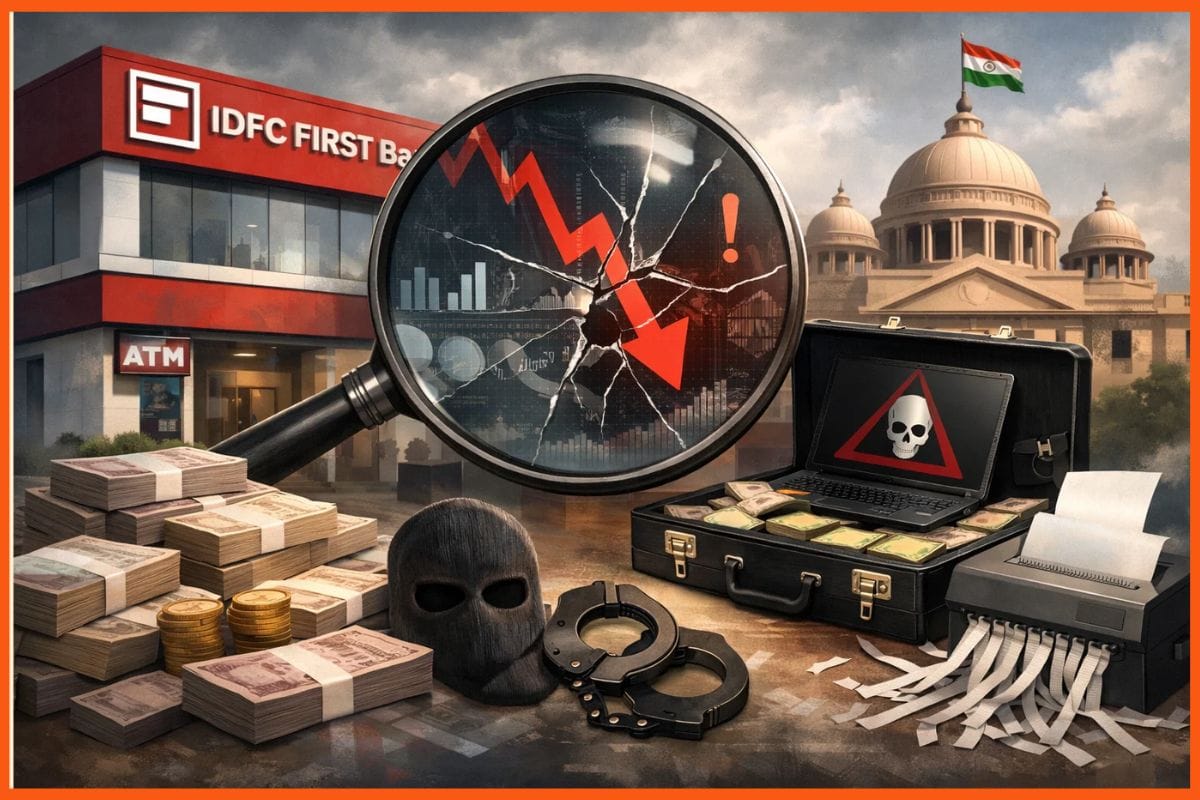PR Agency Founders Shares How Compelling Storytelling Impacts Brand Visibility
PR Insights
Why are stories important for businesses, and what makes them effective? That's what we're exploring next. The art of storytelling has a unique ability to catch attention and leave a lasting impression on people. To understand this better, StartupTalky connected with some awesome PR agency founders and asked them about how exactly storytelling helps companies rise above the noise, and what elements make these narratives truly impactful.
Join us as we explore the insights of these founders on the art of effective storytelling in business.
Shutapa Paul, Founder, Dharma Media Consultants
Shiva Bhavani, Founder & CEO, Wing Communications
Sonalika Pawar, CEO, Bold and Beyond
Kishor Barua, Director, Pitchfork Partners Strategic Consulting
Ritika Garg, founder & CEO, AvancePR
Vivek Pradeep Rana, Managing Partner, Gnothi Seauton
Sonali Sokhal, Founder, Intelliquo
Rohini Saldanha, Founder, The PR Stop
Shraddha Agarwal Jalan, Co-Founder, Blurb Communications
Ashutosh Srivastava, Founder, Point One Communications
Caleb David, Founder & CEO, Perez Consulting
Sowmya Iyer, Founder & CEO, Clarity Communication
Kritika Lalchandani, Founder, Apostrophe Communications
Shailesh K. Nevatia, Founder, Grandeavour Communication
Shutapa Paul, Founder, Dharma Media Consultants

Remember, public relations is a marathon and not a sprint. The campaigns we remember are those that leave us floored and amazed and hit us with stories so powerful that we are unable to forget them. Be it the Dove ‘Real Beauty’ campaign or the Indian government’s ‘Incredible India’ campaign, it has been proven time and again that storytelling is the most powerful weapon in the advertising and PR arsenal. While advertising creates a singular stream of communication, PR encourages positioning of a brand through stakeholder feedback.
Humans are wired for stories, and unlike dry facts and figures, narratives tap into our emotions. This emotional resonance creates a deeper connection with your brand creating brand recall. One can forget a simple grocery list, but not a wonderful meal from the ingredients on the list – stories are the ‘delicious meal’ for the brand. A few important ingredients are as follows:
- Authenticity: Don’t fabricate facts, and let your brand’s mission and vision shine through.
- The Customer is the HERO: The protagonist of this plot should always be the customer and never the product. It should always be about solving a problem for the consumer.
Effective storytelling goes beyond connection; it inspires action.
Shiva Bhavani, Founder & CEO, Wing Communications

Compelling storytelling can help companies stand out in a crowded marketplace by creating an emotional connection with their audience and differentiating their brand. Crafting relatable characters, whether they are customers, employees, or fictional personas, allows the audience to connect with the story on a personal level. Showcasing real people and their experiences builds trust and credibility for the brand. Identifying the challenges and problems the target audience faces and positioning the brand as the solution creates tension and excitement. Guiding the audience through a journey of overcoming obstacles and achieving success keeps them engaged and invested in the story.
Crafting a true-to-brand narrative that aligns with the company's mission, values, and unique selling proposition creates authenticity. Incorporating customer stories and testimonials further humanises the brand and provides social proof.
Consistently telling the brand's story across multiple channels, from social media and blogs to email newsletters and offline mediums, reinforces the narrative and creates a cohesive brand identity. An omnichannel approach ensures the audience encounters the story at various touchpoints, enhancing its impact. By incorporating these elements into their storytelling, companies can create compelling narratives that captivate their audience, establish an emotional connection, and differentiate themselves in a crowded market.
Sonalika Pawar, CEO, Bold and Beyond

Compelling storytelling holds immense power in helping companies distinguish themselves in a crowded market. At its core, storytelling is a fundamental aspect of human communication, ingrained in our culture since ancient times. From childhood tales to personal anecdotes, everyone possesses the innate ability to narrate stories that captivate and resonate with others.
For companies, leveraging the art of storytelling can be transformative. By crafting narratives that go beyond mere facts and figures, businesses can forge deeper connections with their audience. These narratives humanize the brand by instilling emotions and creating memorable experiences that leave a lasting impression.
Effective storytelling not only helps companies stand out but also plays a pivotal role in building trust and credibility. By sharing authentic stories that reflect their values, mission, and journey, companies can engage with their audience on a more personal level. This authenticity fosters a sense of transparency and relatability, strengthening the bond between the brand and its customers.
Kishor Barua, Director, Pitchfork Partners Strategic Consulting

There is a famous quote by Plato: “Those who tell stories rule the world." This is so relevant, even today. In fact, brands don’t exist without stories; take any successful brand, and it will have a great story that has been told multiple times. Stories make an emotional connection with the audience, making a lasting impact.
In public relations, storytelling can serve as a powerful tool for crafting strategic narratives that actively engage audiences, drive engagements, and build trust and credibility.
Narratives can add layers and characters to stories, making them more effective and impactful. So, it's important to understand what your audience would like about you, and then go ahead and build your story.
Ritika Garg, founder & CEO, AvancePR

Storytelling is a powerful tool for companies to distinguish themselves in a competitive market. By weaving compelling narratives into their marketing and communications strategies, businesses can create a strong emotional connection with their audience. This connection fosters loyalty and enhances brand recall.
Effective storytelling involves presenting the company’s journey, challenges, and successes in a way that resonates with customers’ aspirations and values. It's not just about selling a product or service but about sharing a story that aligns with the ethos of the audience. For instance, highlighting how a product is developed, the inspiration behind it, or the impact it has on customers' lives can captivate attention.
Moreover, stories can be told through various mediums, such as videos, blogs, podcasts, and social media, making them accessible and engaging. By consistently delivering authentic and relatable stories, companies can not only attract new customers but also build a community of dedicated followers.

Vivek Pradeep Rana, Managing Partner, Gnothi Seauton

Great companies are master storytellers. Like riveting films, they captivate audiences by embedding their brand into narratives that speak to their audience's aspirations and challenges, making their message unforgettable.
Storytelling is an art that can make or break a company's image. Companies that understand this and become master storytellers have the potential to stand out in a crowded marketplace.
To truly capture the attention of your audience, it is essential to embed your brand within narratives that speak to their aspirations and challenges. By aligning your company's goals with the desires and dreams of your target market, you create a connection beyond mere transactional relationships. This connection taps into your audience's emotional core and makes your message unforgettable.
But it doesn't end there. To elevate your storytelling to the next level, it is crucial to position your company within the larger story of our society's progress. By aligning your narrative with the values and aspirations of society, you foster a sense of greater purpose and relevance. This helps your company resonate more deeply with the citizenry and positions you as a contributor to societal progress.
Sonali Sokhal, Founder, Intelliquo

Rule of thumb is, that each journalist is looking for a compelling story. In terms of the content, this usually focuses on the following points:
- Are you addressing a need gap? Are you solving a problem no one has solved before as efficiently as yourself?
- Are you creating impact? Will your legacy leave the world a better place? Is there job creation?
- Are you creating disruption or innovation in design, process or technology?
- Are you growing at an impressive reach?
- Is your brand future-proof? Does it have best practices?
Rohini Saldanha, Founder, The PR Stop

Every brand is different. Thus, PR strategy and tactics differ and need to be tailored depending on the goals of a brand. Every client is looking to partner with individuals and teams that can help them create a greater impact for their businesses through a better understanding of their business strategy and recognising the business issues facing them. PR does just that.
As a PR practitioner, you get to be a trusted advisor to your clients with a deep understanding of their core business issues, helping them to reassess their strategy and find a competitive advantage.
When people refer to PR as spinning a narrative or finding a hook, one should remember that PR can never float a fake narrative nor craft a new one. Your company is what it is. PR can't change that. With each brand being unique, PR is very useful in making a brand’s personality come alive.
The science of PR is strategically looking at ways of knowing how to take what you have and finding ways to make it relevant to the media and target audience that you want to reach. Of identifying a need gap that exists with your target audience, commonalities that make you more relevant, or striking an emotional connection with them that makes your brand message resonate or at least grab their attention. PR is an art form that requires analytical thinking and a strategic bent of mind to make the most impact.
Shraddha Agarwal Jalan, Co-Founder, Blurb Communications

Storytelling is a key component of any communication strategy, whether in PR or advertising. People connect with stories rather than products or services. A compelling story can evoke emotions such as nostalgia, motivation, or simply a feel-good factor. Effective narratives often draw from the founder’s journey, personal learnings, or imaginative concepts. Authenticity is crucial—your story should be unique and reflective of your brand's essence. This authenticity will be your differentiating factor and resonate more deeply with your audience.
Ashutosh Srivastava, Founder, Point One Communications

For any PR approach to be successful, it must have a compelling storytelling element that connects companies with their audience on a more personal level. We live in an age where every channel is saturated with media and therefore having an interesting story is not just an option but rather; it is mandatory for one to be noticed amidst the noise.
Storytelling begins with being genuine and useful. Our narrative should combine the unique parts of the company’s history, its values, and what it offers with the intent to touch souls and move people’s minds who are important to us. Furthermore, a good story should be relatable as well as stir real feelings such as inspiration, compassion, or joy that creates something meaningful beyond mere brand endorsement.
Similarly, storytelling also appeals to different audiences by taking them into the narrative that stimulates their imagination leading them into dialogue. Through utilization of stories throughout various tools from press releases, to interviews, to articles, etc, PR campaigns should create immersive experiences that preserve uniqueness and make customers stay longer while leaving others behind.
Caleb David, Founder & CEO, Perez Consulting

Storytelling continues to be the best form of communication today, evolving to meet current consumption patterns of news and data. Modern storytelling must be well-crafted, easy to use, and easy to share. Integrating contemporary references helps ensure an immediate connection with the audience. Additionally, narratives should be crisp and concise to hold attention effectively.
India, with its rich storytelling tradition from the Ramayana and Mahabharata to the Panchatantra, demonstrates the timeless appeal of stories. This cultural legacy is evident in brands like the Tata Group, whose journey from humble beginnings to global prominence embodies resilience and social responsibility. Similarly, Amul India's iconic campaigns blend humor and social commentary, making the brand a cultural phenomenon.
Authenticity is crucial in storytelling, capturing the brand’s essence with sincerity and integrity. Attention to detail, much like the plot twists in Bollywood films, ensures every element, from logo design to domain choice, enriches the narrative. As businesses embrace digital platforms, storytelling evolves, offering new ways to connect with audiences through social media and immersive websites.
At Perez Consulting, we believe consistency is key. Maintaining a cohesive narrative across all touchpoints builds lasting connections and helps brands stand out. By celebrating culture and commerce, we harness the power of storytelling to inspire, connect, and drive meaningful change, crafting stories that shape the future.
Sowmya Iyer, Founder & CEO, Clarity Communication

Compelling storytelling serves as a powerful tool for companies to captivate audiences and differentiate themselves in competitive markets. By weaving narratives that resonate emotionally with stakeholders, companies can evoke empathy, build trust, and leave a lasting impression. Authenticity and genuine effort in PR campaigns underscore the importance of crafting narratives rooted in truth and sincerity.
Effective storytelling involves identifying unique brand attributes, understanding audience preferences, and delivering messages in a relatable and engaging manner. Incorporating visuals, testimonials, and real-life anecdotes can further enhance the impact of storytelling efforts.
Kritika Lalchandani, Founder, Apostrophe Communications

Storytelling is the essence of connection, and at Apostrophe Communications, it’s the heart of our PR strategy. I’ve always believed that a good story transcends mere facts and figures; it touches lives and shapes perceptions. Our campaigns are built on this philosophy, and the results speak volumes—a 50% increase in community engagement and a 40% rise in customer loyalty. These numbers are significant, but the real success lies in the stories behind them.
Each narrative we craft is a bridge between the brand and its audience, turning every message into a shared experience. It’s about creating a dialogue, not a monologue, and that’s where the true power of storytelling lies. It’s not just about telling; it’s about engaging, inspiring, and leaving a mark on the hearts and minds of people. That’s the kind of storytelling we champion at Apostrophe Communications, and it’s what makes our approach so effective.
Shailesh K. Nevatia, Founder, Grandeavour Communication

Compelling storytelling is a powerful tool for companies to differentiate themselves, connect with their audience on an emotional level, and leave a lasting impact. Effective narratives are authentic, engaging, and resonate with the target audience. They should evoke emotions, convey the company's values and mission, and create a memorable brand image. By weaving storytelling into their PR efforts, companies can humanize their brand, build trust, and stand out in a crowded market.
The society these days is very aware. They just don’t want to know about the product that the company is making. They are also interested in knowing the background stories. Whether the organization is doing business ethically or is doing anything good for the environment, such things do matter to society and need to be communicated across. Adding such details can make the stories more effective and compelling.

Must have tools for startups - Recommended by StartupTalky
- Convert Visitors into Leads- SeizeLead
- Website Builder SquareSpace
- Run your business Smoothly Systeme.io
- Stock Images Shutterstock





